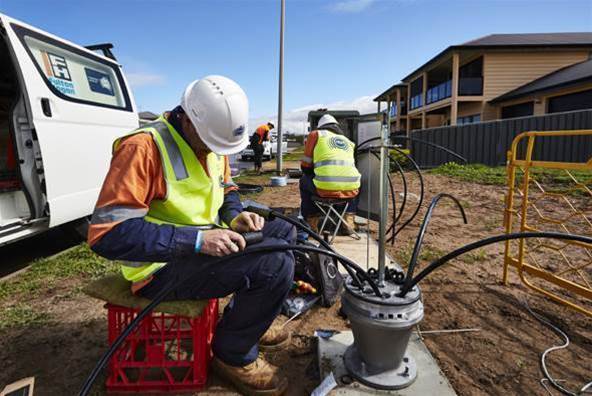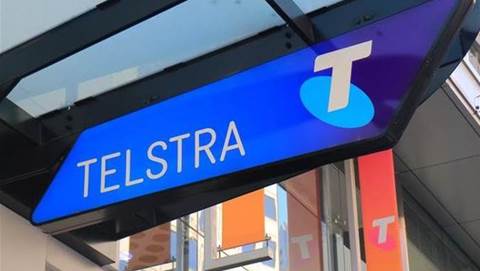NBN Co is facing the biggest fight of its nine-year existence as regulators threaten to redefine the company as a ‘new Telstra’ that should be subjected to a similarly onerous oversight regime.

The government-backed network builder strongly rebuked the Australian Competition and Consumer Commission (ACCC) for branding it a “monopoly service provider” and suggesting it submit to the kind of wholesale rules forced on Telstra in the ADSL era.
NBN Co argued there were “no grounds for regulatory intervention” nor any indication of “market failure”.
It also savaged the ACCC for not laying out allegations being levelled against the company.
The detail is contained in a 130-page submission for the NBN wholesale service standards inquiry, which was announced in November last year.
The inquiry was always going to induce a kind of siege response from NBN Co: major retail service providers all support the ACCC’s intervention, and - in an unusual move - the ACCC has said it will regulate without even waiting for the inquiry to end.
NBN Co is furious that the project is now being couched in the same terms that were used to describe Telstra in the pre-NBN era.
The NBN project was a second chance for Australia’s telecommunications sector, one which stripped Telstra of its wholesale monopoly and allowed retailers to compete with each other on equal terms.
“Massive changes have been made to the industry structure to reach this point,” NBN Co said in its submission, which iTnews has obtained ahead of public release.
“It is disappointing that the ACCC appears to have lost sight of the importance of the industry restructure and NBN Co’s incentives in that new market structure.”
NBN Co blasted the idea that Telstra-era regulation is even necessary in an NBN world, criticising it as a form of “legacy” thinking.
The network builder went to great pains to distance - as well as differentiate - itself from Telstra.
It argued that it “did not have the same incentives as a vertically integrated incumbent”.
“NBN Co’s position in the new market structure is completely different to that of vertically integrated monopolists which typically have weak incentives to increase demand for their wholesale services,” the company said.
“Unlike vertically integrated monopolists, NBN Co has a common interest with RSPs to provide a high-quality product at a price which generates substantial sales.”
Gaming the system
If NBN Co is to ward off the ACCC’s regulatory threat, it must convince the regulator that the two-year process it undertook to nut out a new wholesale agreement with RSPs - known as WBA3 - was not as one-sided as some RSPs suggest.
RSPs representing 90 percent of the NBN market dislike the service terms in WBA3.
They have lodged complaints with the ACCC, senators, and others powerful enough to pursue change.
NBN Co was forced to deny to senators recently that it had coerced RSPs into signing up to WBA3 by threatening to withhold payments and access to new pricing.
NBN Co repeatedly argues in its submission that there is no real power imbalance between itself and RSPs.
“Parties entered into WBA negotiations with no overwhelming advantage in bargaining power,” it said. It characterised the negotiating positions elsewhere as “relatively equal”.
Instead NBN Co argues that RSPs have a “countervailing bargaining power” whereby they can “credibly threaten” to hold NBN Co to ransom by shoving all users on low-speed services, and by threatening to “bypass” the NBN altogether.
It also implores the ACCC to ask more questions of RSPs and to potentially call them out for trying to “game” the NBN through unnecessary regulation.
“Just because an RSP has raised a ‘concern’ with the ACCC does not mean that negotiation was ineffective or unsuccessful (or that there was any imbalance of bargaining power),” NBN Co charged.
“A negotiation should not be considered somehow ineffective or unsuccessful simply because one or other party to the concluded agreement would have liked to extract more from the other party.
“An RSP may be engaging in some commercially rational regulatory ‘gaming’.”
This allegation is repeated several times.
The proof will be in whose version of events on WBA3 the ACCC deems most trustworthy.
In that regard, NBN Co has laid considerable detail on the line: over 10 pages of extremely detailed notes on the alleged negotiating positions of NBN Co and RSPs as they wrestled over WBA3’s terms.
The “detailed explanation of the negotiation of specific aspects of NBN service levels” is intended to show that “these service levels were agreed in a commercial manner with RSPs seeking improved positions and [that NBN Co] addressed those issues in an appropriate way".
“In an environment with relatively even bargaining power, it is NBN Co’s strong submission that the outcomes of these negotiations are exactly what would be expected in an effective working environment," it said.
Someone will pay
If the ACCC makes good on its threat to serve NBN Co with regulated non-price terms, there will be consequences, the network builder warned.
“Any regulatory intervention on current service levels would need to take into account the significant impacts this would have on [our] costs and rollout schedule,” NBN Co said.
“Mandating changes to our service standards as we approach this peak will most likely prevent NBN Co from meeting its ambitious rollout targets by diverting [our] focus and effort, as well as [that of our] service delivery partners and RSPs, away from the rollout and customer connections, and into negotiations on the revised service standards.”
NBN Co also indicated that it might have to try to renegotiate deals with Telstra and other delivery partners to meet “service levels required by regulation".
It said any changes would “necessitate NBN Co significantly restructuring and renegotiating operational KPIs/SLAs, and financial remedies, to a range of existing contracts".
The rest of this section is redacted from public view.
NBN Co ultimately warned that internet users would be the ones that paid the price, either through new fees or higher wholesale charges.
“The extent to which any additional NBN costs will be passed on to RSPs would need to be considered by NBN Co in the event of regulatory intervention,” the network builder said.

















.png&h=141&w=208&c=1&s=1)

